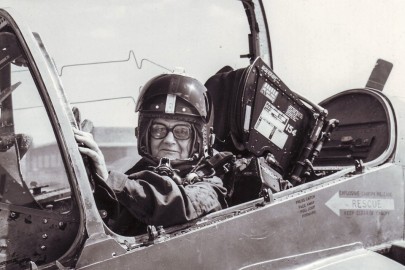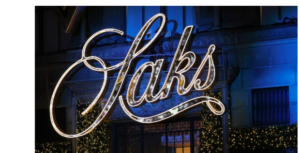Any big journalistic scoop requires a combination of luck and hustle. It’s only natural that Clare Hollingworth had a lot of both when she scored one of the greatest scoops of the 20th century.
Hollingworth was born to a industrialist who took her to visit major historical battlefields as a girl. As a young woman, she showed a rebellious spark, breaking off an engagement and going to work for the League of Nations as a secretary. From there, she jumped to work for a British refugee organization that sent her to Poland after the Allies sanctioned Hitler’s seizure of the Sudetenland. Thanks to an old but still valid German visa she’d gotten for a ski vacation, she was able to enter Germany and shepherd refugees to Poland and then on to safety.
That work brought her a measure of fame—she arranged the evacuation of more than 3,500 Jews and dissidents, earning the moniker “the Scarlet Pimpernel,” after Baroness Orczy’s novel, according to Time—but she was abruptly sacked in July 1939, apparently because British intelligence felt she was granting visas to too many people who were either politically or ethnically “undesirable.” She returned to the U.K., got herself accredited by The Daily Telegraph, and went back to Poland.
Back in the field in August of that year, she borrowed a car from an ex-boyfriend in the British Foreign Service, surmising that the Union Jack on the vehicle would get her into Germany without trouble. She was right.
“The border guard was a bit surprised when they saw the Union flag flying on the car, but they let me in,” she told the Telegraph in 2011. “I stopped to buy aspirin and white wine and things you couldn’t get inside Poland. And then I was driving back along a valley and there was a hessian screen up so you couldn’t look down into the valley. Suddenly, there was a great gust of wind which blew the sacking from its moorings, and I looked into the valley and saw scores, if not hundreds, of tanks.”
She drove back to Poland and told her ex-boyfriend. He wired the government in London. Hollingworth, meanwhile, filed her dispatch to the Telegraph reporting Hitler’s invasion of Poland—breaking the news of the start of World War II. She was 27 years old and had been a working reporter for three days.
The story, which ran without a byline under the heading “From our own correspondent,” according to the newspaper custom of the day, is often described in the British press as “the scoop of the century.”
It would prove to be more than beginner’s luck. Hollingworth, who died Tuesday in Hong Kong at the age of 105, went on to rack up plenty of other journalistic exploits over the course of a long career. In 1942, Field Marshall Bernard Montgomery barred female reporters from the front lines in Egypt, so Hollingworth got a credential from an American magazine, Time, so she could continue reporting. (Hollingworth didn’t have much regard for Clare Booth Luce, a journalist who married Time founder Henry Luce, nor for Martha Gellhorn, the swashbuckling war correspondent who was for a time married to Ernest Hemingway, regarding them both as prissy elitists, according to The Washington Post.)
She also reported from Vietnam, India, and Pakistan, and was the first to interview Mohammad Reza Pahlavi when he became shah of Iran—and was among the last to interview him after he was deposed. She learned to fly and to jump out of planes.
But Hollingworth’s other monumental scoop came in 1963, when her acquaintance Kim Philby, a British intelligence agent who worked as a reporter as cover, didn’t show up for a dinner party in Beirut. Using port records, Hollingworth determined that Philby had boarded a Soviet ship bound for Odessa; Philby, a double agent for the Soviets, was defecting. She wrote the story, but her employer at the time, The Guardian, held it, concerned the account was too explosive. In typical style, Hollingworth waited until the editor holding the story was out and convinced his deputy to publish it.
Hollingworth went to Asia in the 1970s, covering Mao’s death and other stories in the region. She mostly lived in Hong Kong from the 1980s onward. She celebrated her birthday at the Foreign Correspondent Club there in October. As late as 2004, The Guardian reported that while Hollingworth did not have a formal job with the Telegraph, her final employer, she did not think of herself as retired and called the desk in London daily to check in—and had, until recently, made a habit of occasionally sleeping on the floor, just to make sure she wasn’t going soft.
When Hollingworth turned 100, her eyesight failing but her vigor unabated, she was asked what she would do if she were young.
“I should look through the papers and say, ‘Where’s the most dangerous place to go?’ because it always makes a good story,” she told the Telegraph. Nevertheless, she said: “I must admit that I enjoy being in a war… I’m not brave, I just enjoy it.”
If that statement was plainly ridiculous, Hollingworth could be forgiven one small liberty with the truth after a lifetime of unparalleled reporting.
Ask me anything
Explore related questions





